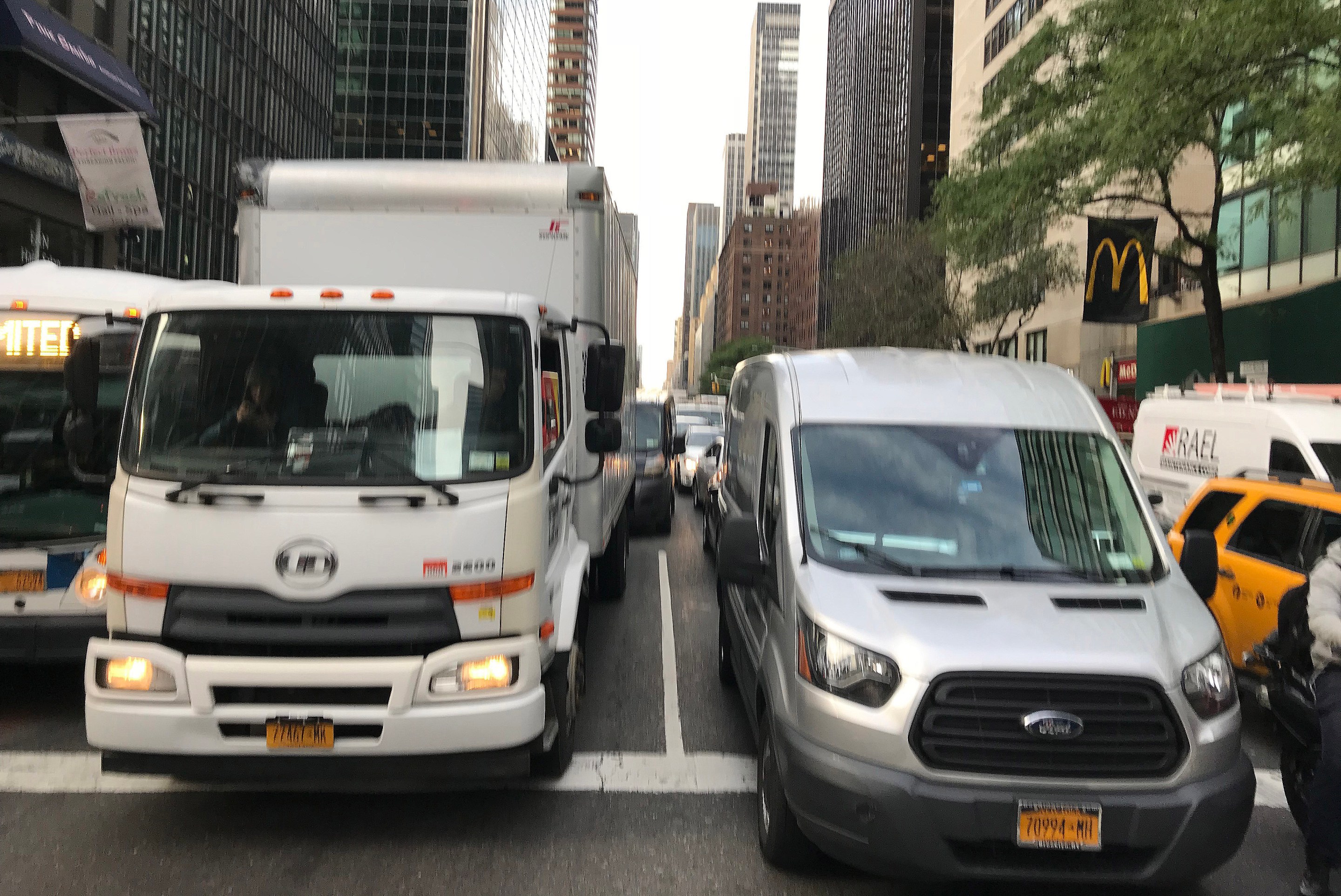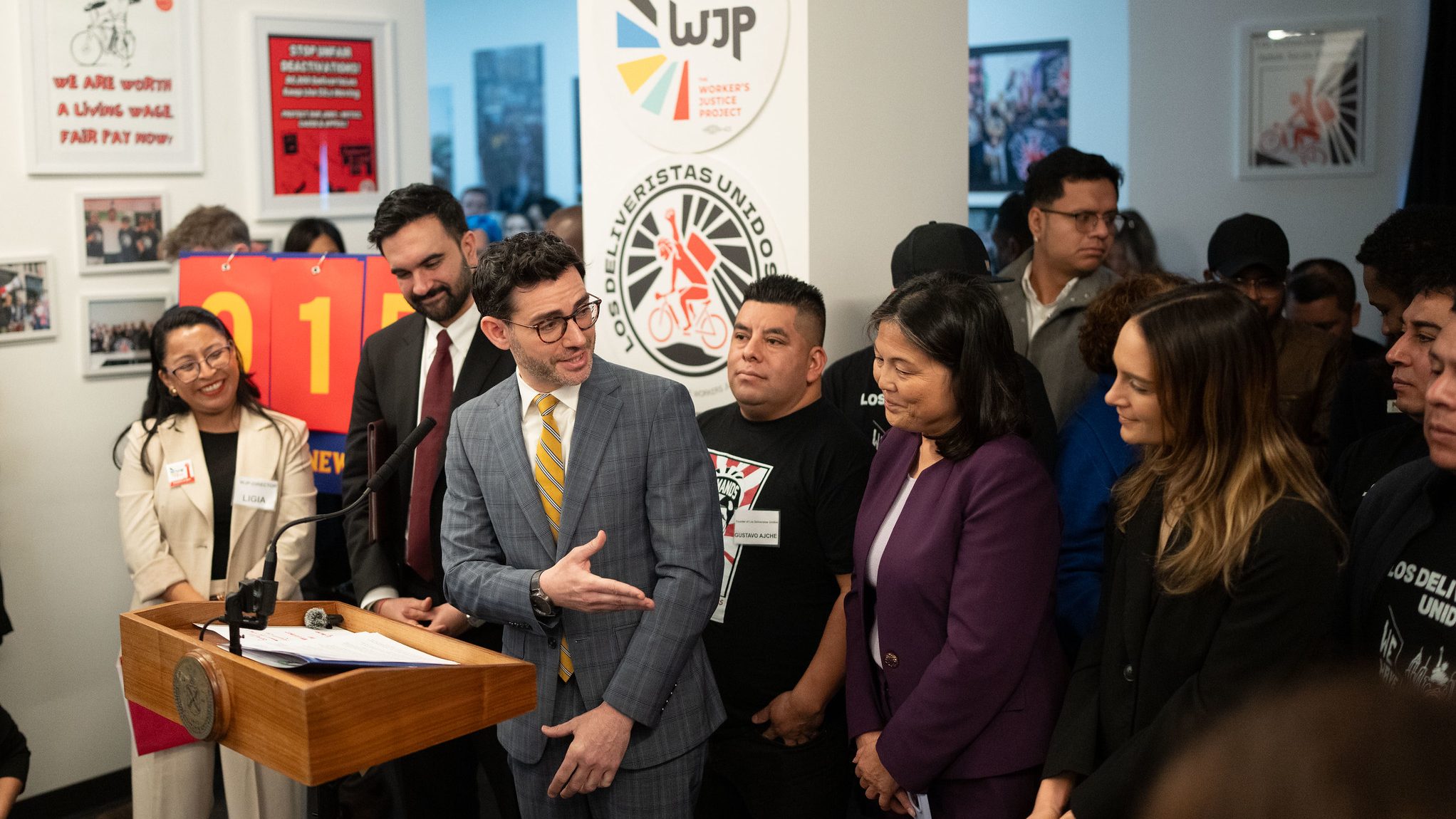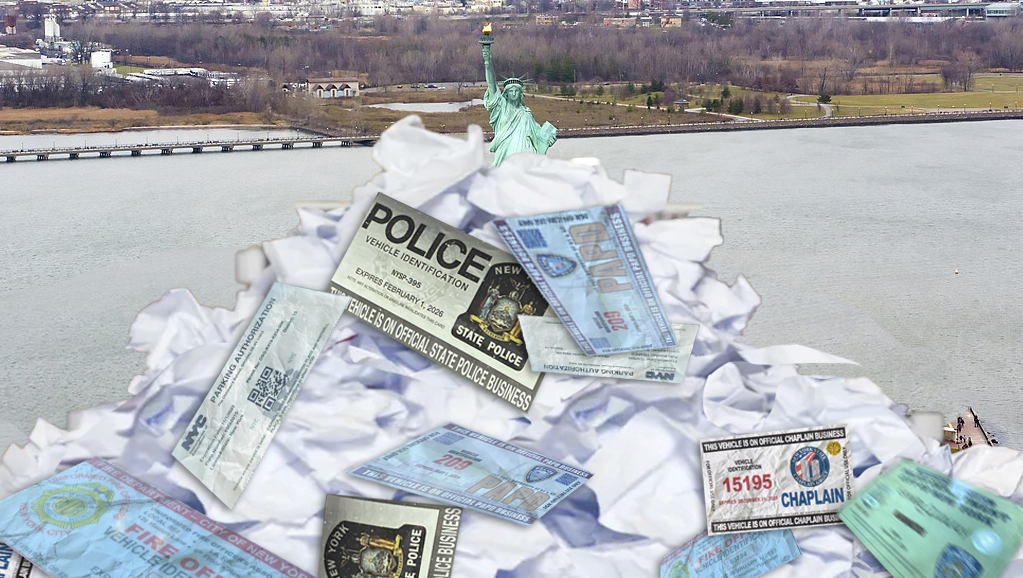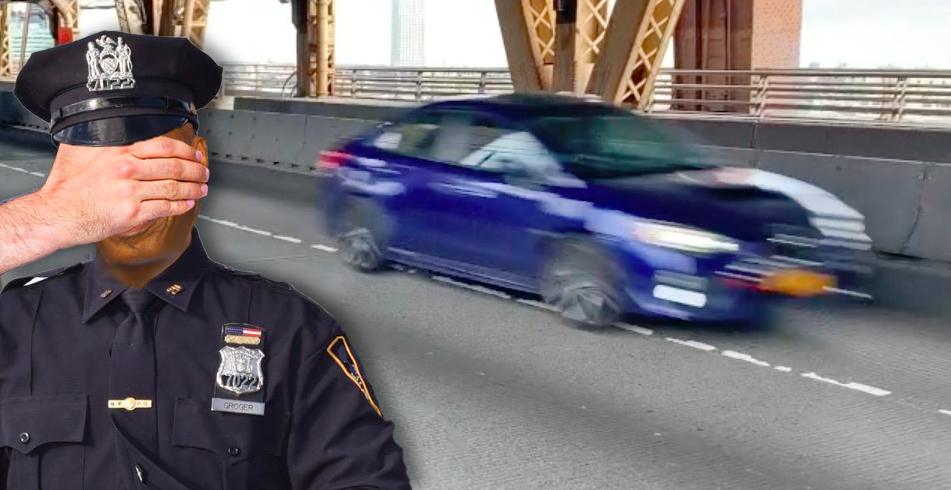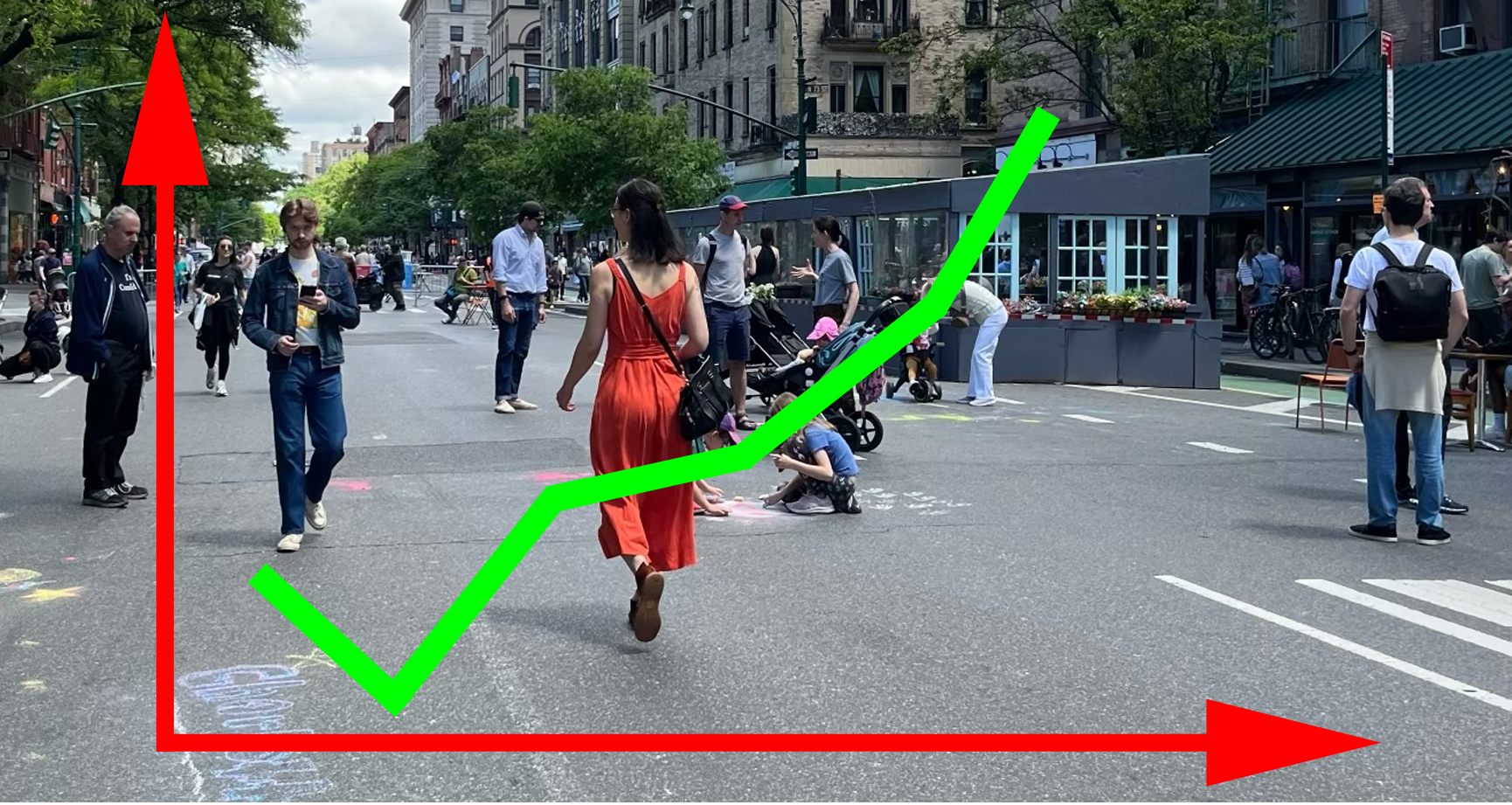It’s not the street, it’s the stupidity.
The United Nations General Assembly is underway and, predictably, everyone is focusing only on car traffic. Yet no one is complaining about the cars. Or the policies that allow them to cause traffic. Or the decisions that punish everyone else.
Or even this basic question: Why is the NYPD in charge of transportation in this town? And why does the NYPD restrict the movement of cyclists at the very time when the Department of Transportation — which should set transportation policy in this town — is telling people to bike instead of drive this week?
Those are the questions that dawned on thousands of cyclists this morning as they got to First Avenue and 39th Street this #UNGA morning. That's where a phalanx of NYPD officers was stationed to ensure that no cyclists got any further up First Avenue — even as they waved cars right on by.
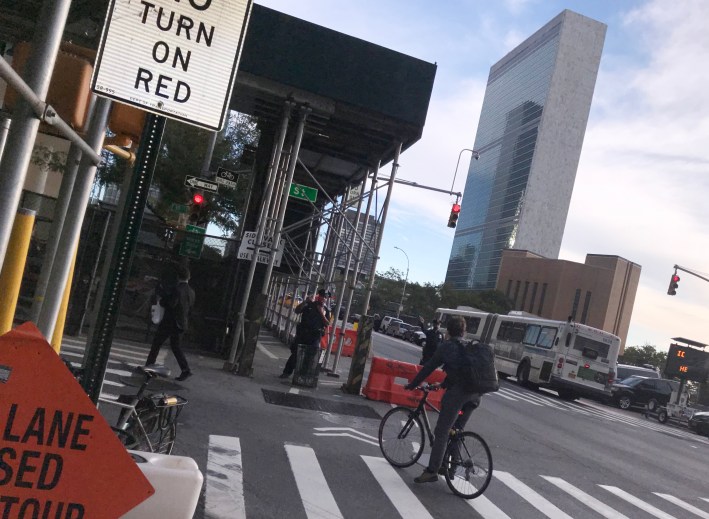
I was one of the cyclists. So I reminded the polite officer that a bomb-filled car can do significantly more damage than a cyclist with a backpack filled with explosives (full disclosure: I had only a Luna bar and a spare inner tube in my bag).
"I didn't make sense to me either. But I'm just enforcing what I was told to enforce. I don't make the rules," he said in a tone that suggested he wouldn't change the rules if he's ever in a position to do so.
His partner told me to go to Second Avenue. I reminded him that Second Avenue goes downtown, which is the opposite direction of uptown. He shrugged.
I headed west from First Avenue — though the next uptown protected bike lane isn't until Eighth Avenue. (Let's go over that again: Second, Third, Lexington, Park, Madison, Fifth, Sixth, Seventh — none has an uptown protected bike lane.)
At the corner of Second, however, I ran into two cyclists who said they were going to continue their commute up Third Avenue.
"Third Avenue?" I said. "That's a suicide mission."
"I've done it before," said one of the guys. "It's not so bad."
It's not so bad. That's the calculus cyclists have to ponder when the NYPD makes arbitrary transportation policy. But "it's not so bad" is not very different from, "I probably won't get hit and die," which is not very different from "I could easily get hit and die." (Neither DOT nor the NYPD said what cyclists are supposed to do when key protected lanes on First and Second avenues are closed. City Hall referred all questions to the NYPD. Let that sink in for a minute.)
I took Third for a while. Here's what that looked like:
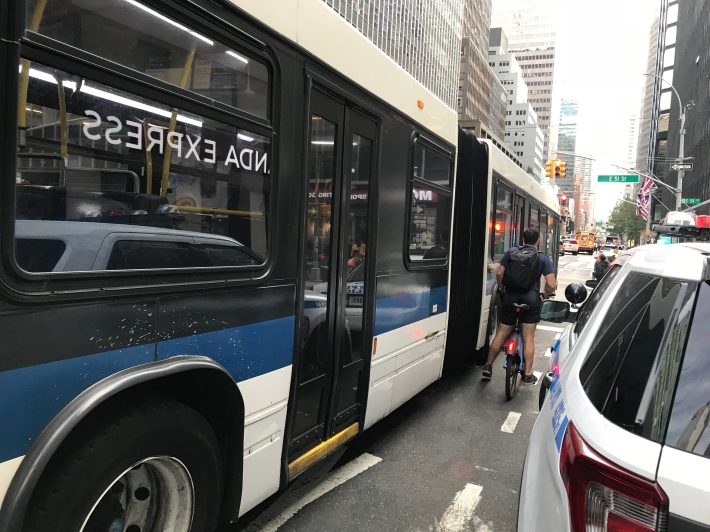
This is not a parking lot. It’s 59th Street near 6th Avenue - being in #Traffic this morning on @NY1 #MorningsOn1 #NY1Gridlock #Gridlock #NYC #UNGA pic.twitter.com/lqqs09y8VL
— Roger Clark (@RogerClark41) September 24, 2018
NYPD should drop a second line of cones to the right of these & create a temporary bike lane. Telling cyclists their safety is unimportant & actively placing them in danger is a really bad look. FYI @NYCComptroller this is a "cause and create" situation. Praying no one is hurt. https://t.co/FiAkYXOmDr
— 🚲Peter W Beadle🚲 (@pwbnyc) September 24, 2018
